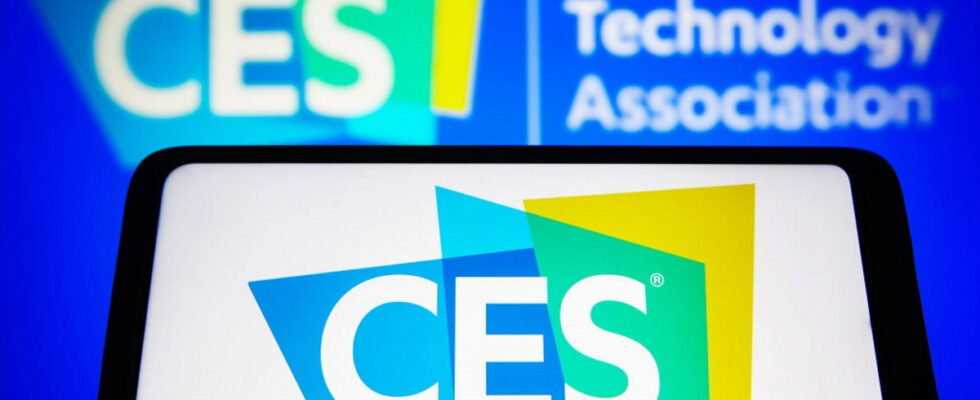The 2022 edition of the big tech show in Las Vegas is maintained this week in a hybrid format, despite the announcements of successive last-minute withdrawals, in the face of the resurgence of Covid-19 cases. But a certain number of companies, and in particular names from French Tech, will still be present there, to present their innovations to the public.
Digital health has been talked about more since the start of the health crisis. In France alone, the France recovery plan plans to devote 1.4 billion euros to the development of the use of digital technology in the health field and 0.6 billion euros in the medico-social sector, such as reports the Court of Auditors in a recent document on access to healthcare.
Medical devices are also one of the sectors particularly monitored for this 2022 edition of the CES. Here is a small selection of three medical innovations representative of the trends and societal debates of tomorrow.
Body Scan, the latest connected scale from Withings
Remember the days when a smart scale would just measure your weight, or even your body composition, then sync it all with an app? Withings’ new smart scale does much more than that. The company announced its “Body Scan”, a connected health station that can detect certain peripheral neuropathies and monitors indicators of cardiovascular health.
 Image: Withings.
Image: Withings.
Clearly, the Body Scan will still take basic smart scale measurements, but it will also take six-lead EKG readings every time you weigh yourself. There are 14 electrodes on the base, and four more in a retractable handle that pulls out of the scale to perform the ECG. The grip sits above a 3.2 inch LCD screen.
“Thanks to the Body Scan, we are once again reinventing the scale by offering a device that transforms the morning weigh-in and delivers data that users often do not have access to during their annual medical visit. Access to personalized health programs developed with professionals in the sector (doctors, cardiologists, diabetologists, neurologists, etc.) adds a new dimension to continuous health monitoring, ”the company said in a press release.
Withings currently sells the Body Cardio smart scale that measures and records heart rate, but it does not yet have Body Scan ECG functionality. Its price has not yet been announced, and its release date is also not available. Withings will have to wait for the Food and Drug Administration (FDA) to approve the Body Scan and all of its new functions. This is expected to happen in the second half of 2022.
FollowKnee, a smart knee prosthesis
By 2030, the demand for total knee prostheses is expected to increase by + 147%. This is the figure given by the electronics and information technology laboratory of the CEA (or also called CEA-Leti), which presents its FollowKnee demonstrator, a connected knee prosthesis made up of three sensors and an accelerometer.
 Image: CEA-Leti.
Image: CEA-Leti.
Intended to facilitate surgical management, postoperative follow-up and rehabilitation, this personalized prosthesis can be adapted to the morphology of each person thanks to a scan of the knee. Surgical planning software automatically retrieves the data, and the prosthesis is then designed by artificial intelligence (AI) and manufactured by 3D printing.
More precisely, the system developed by CEA-Leti is composed of a pH sensor to detect infections, a low-consumption deformation sensor, a biocompatible system and compact sensors and electronics powered by inductive coupling.
SkinCasts, custom-made splints by 3D printing
Among the fields of application of 3D printing, personalization and tailor-made are major trends already seized by players in the medical world who design and manufacture everyday objects, such as dental aligners or orthopedic insoles. . The start-up SkinCasts, which will be at the Las Vegas show this year, claims to be the world’s leading manufacturer of custom 3D printing splints.
 Image: SkinCasts.
Image: SkinCasts.
These splints are made from polymer by studio Vr’tig.0. They are especially the work of a “long work of R & D” to meet the specifications of the surgeons, supports SkinCasts in a press release.
Wanted at the same time “safe, comfortable, breathable, resistant and light”, these splints are supposed to allow “a great freedom of the adjacent joints” without causing friction on the scars. In addition, the splints also allow patients to safely x-ray so as to follow the progress of wound healing, the company argues.
And as a bonus: Caducy’s medical selfie
Smile, you are analyzed! Following a last minute change of program, you will not finally see this innovation at CES, because the start-up i-Virtual has decided to cancel its visit to Las Vegas. But this medical device remains nonetheless interesting. Called Caducy, it allows you to monitor vital parameters without contact, using a simple 30-second selfie from your smartphone.
While telemedicine and telesurveillance have experienced renewed interest since the health crisis, the start-up from Metz is part of this trend with this remote monitoring device. Using a simple webcam, and thanks to AI, the application detects the user’s face and blood flow. With a single image, the device is able to monitor six parameters in total, including heart rate, respiratory rate and stress level.
The start-up announced last March the raising of 2.5 million for its project. She is also one of the winners of the 7e edition of the French IoT competition, organized by La Poste. As such, i-Virtual benefits from an eight-month support program, including bootcamp, workshops and mentoring, as well as advice on financing plans and business networking opportunities, of which the CES was to be a part.
